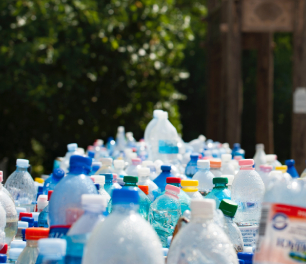Ensuring Safety in Food Contact Materials: The Role of Recycled Plastics
2024.09.12
As consumers increasingly demand safe products, there’s a strong desire to reduce the use of new plastics and enhance the incorporation of recycled materials. However, concerns over non-intentionally added substances (NIAS) in food contact materials (FCM) raise important questions about how we can establish a true circular economy that delivers safe products made from recycled plastics.
What Are Non-Intentionally Added Substances (NIAS)?
NIAS refers to substances that unintentionally contaminate food contact materials. These substances can originate from various sources, including:
- Impurities in raw materials
- By-products of chemical reactions
- Contaminants introduced during the production process
Without proper assessment and corrective action, these harmful substances can pose significant risks to consumer health.
Why Are Plastic Recycling Headlines Today?
In recent years, the issues surrounding plastic packaging use and waste have garnered significant media attention. Both consumers and regulatory authorities are advocating for changes in packaging habits to promote greater recycling of plastics. However, a circular economy can only thrive if products created from recycled materials are safe and compliant with regulations. The FCM industry faces several issues regarding the use of recycled materials in the creation of new products.
What Challenges Does the FCM Industry Face with Recycled Materials?
The food contact materials industry encounters several challenges regarding the use of recycled plastics:
- Diverse Plastic Types: Depending on the collection methods and recycling technologies, recycled plastics may contain various plastic types.
- Lack of Identification: Currently, identifying the specific types of plastic in each article is nearly impossible without individual analysis. This oversight can lead to non-compliance with EU regulations, such as Commission Regulation 10/2011 - Plastics, Materials and Articles in Contact with Food
Can Recycled Plastics Be Trusted?
While the EU promotes a circular economy, manufacturers and consumers of food contact materials must ask, “Can we trust recycled plastics?” The collective recycling of plastics can lead to contamination. Observable issues may include:
- Cloudy or discolored plastics
- Unpleasant odors
However, some contaminants, such as genotoxic impurities, may remain undetectable, posing hidden risks.
How Can We Ensure Safe and Compliant Products?
At SGS, we offer comprehensive services to support operators in the food contact materials sector. Our solutions include:
- Testing and evaluation for NIAS
- Regulatory compliance assessments
By providing these services, we help ensure that products made from recycled plastics are safe for consumers and compliant with regulatory standards.
As we move towards a more sustainable future, addressing the safety concerns associated with non-intentionally added substances in food contact materials is critical. By prioritizing the use of safe, recycled plastics, we can work together to build a circular economy that benefits both consumers and the environment.
Please subscribe and contact us at TIC Mall for more details.









